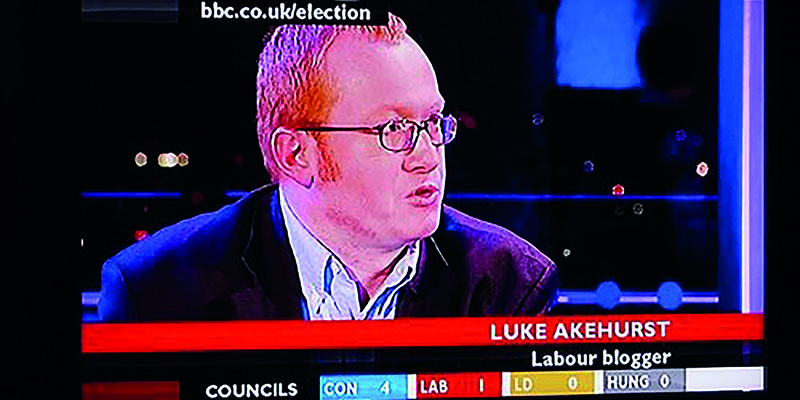Natalie Elphicke is welcomed in. Jeremy Corbyn and Diane Abbott are kept out. Meanwhile, the Corbynista left limps on in 57 insipid varieties, writes Carla Roberts
Sir Keir Starmer had big hopes for the defection of rightwing Tory MP Natalie Elphicke: just after the boost of the local election results and the defection of former health secretary Dan Poulter, he orchestrated a bit of political theatre by having Elphicke cross the floor just before prime minister’s questions, all in front of live cameras.
Starmer’s intention was to prove to the establishment and big business once more that Labour is not just more popular than the Tories at the ballot box, but also very much a safe pair of hands. See, even a rightwinger like Elphicke now finds the Labour Party more attractive than the crazies who presided over the Brexit disaster, crashed the economy under Liz Truss and are now banking all on getting a few hundred traumatised refugees sent to Rwanda! It was also supposed to be a signal to other Tory MPs to jump the sinking ship and join Sir Keir’s merry second eleven.
Alas, he picked the wrong kind of Tory. The press had a weekend of great fun after former justice secretary Robert Buckland (Tory MP for South Swindon) chose to dish the dirt on his erstwhile colleague: in 2020, she allegedly asked him to intervene on behalf of her now ex-husband, Charlie, in his sex assault trial, hoping that Buckland would be able to switch the trial to a different court and a different judge. Buckland now says she behaved “outrageously” – it was “completely inappropriate”.[1]
Not inappropriate enough to report it straightaway, obviously. He and the rest of his Tory chums would no doubt have continued to cover up her behaviour, had she not changed sides. This, and similar tales about her defection being due to thwarted ambition – she was not made a minister – and her ill-considered attacks on her husband’s victims, are supposed to serve as a powerful warning shot to other Tory MPs, some of whom must be toying with the idea of following her example … and perhaps prolonging their parliamentary careers. There are doubtless compromising files in the whips’ office detailing all manner of indiscretions, scandals and missteps waiting to be published. (Despite that, however, rumours are circulating of other possible defectors.)
The press backlash over Elphicke somewhat overshadowed the more obvious point: while Sir Keir welcomes with open arms a particularly unpleasant rightwinger into the party, left MPs like Jeremy Corbyn and Diane Abbott remain in limbo land, having had the whip withdrawn over nonsense charges and, in Abbott’s case, an admittedly stupid letter to The Guardian, in which she claimed that white people cannot experience racism “all their lives”. Travellers, anyone? But if stupidity was a crime, the current parliament would be a very empty place indeed.
The Labour left, as far as it still exists, has been relatively outspoken over Elphicke’s change of party. Zarah Sultana MP told the BBC that Elphicke was
a member of the [Eurosceptic] European Research Group; she voted for Liz Truss in the leadership; she’s at odds when it comes to fire and rehire; she has attacked trade unions and their activities; [she’s] not great on the environment either. So, unless she’s had the biggest Damascene conversion ever, I just don’t buy it.
Incompatible
Matt Wrack, general secretary of the Labour-affiliated Fire Brigades Union and, since September 2023, president of the Trades Union Congress, complains in a letter to Sir Keir (published by The Guardian) that the “disgraceful” MP for Dover has spoken “in support of the new anti-union laws and blamed firefighters for the deaths of three people who perished during a national strike”. This is “alarming”, he says,
considering that it is current Labour policy to repeal the Strikes (Minimum Service Levels) Act, which effectively bans strike action across parts of the public sector: Labour’s pledge to repeal this authoritarian legislation within 100 days of taking office, alongside the 2016 Trade Union Act, is a crucial commitment. Natalie Elphicke should never have been given the Labour whip, but these remarks further undermine the decision to accept her into the party.[2]
Sir Keir has since promised not to waver on this commitment. At his meeting with trade union general secretaries on May 14 he reaffirmed his pledge not to water down workers’ rights. But we all know that it would not be the first time he has broken a pledge or two, nor will it be the last.
Brother Wrack thinks that Elphicke’s political views make her “incompatible” with being a party member, while the Campaign for Labour Party Democracy has produced what might well be the tamest model motion in the history of the soft left: It reads, in full: “This CLP calls on the NEC to consider the party’s membership criteria for the PLP to ensure they are in line with Labour values.” That is it!
Members are further given ‘advice’:
not to mention either Jeremy or Diane when discussing this motion in local party meetings. This because the general secretary previously banned local parties from discussing any individual who is subject to the party’s complaints and discipline processes. The ban is undemocratic and it is applied in a factional way. However, breaching it has led to party members being suspended. So for the present it is advisable to observe these factional restrictions that have been imposed on local party meetings.
Real fighting talk there!
There is, of course, no definition of what such “Labour values” might be and how Elphicke’s views are “incompatible” with them. Historically Labour government values have been to throw a few crumbs to the working class while promoting the interests of British capitalism at home and abroad (including, of course, fighting colonial wars against the uppity natives). However, so supine is Sir Keir, that he promises few if any crumbs when he’s in government.
For example, Labour has just been outflanked on the left by ‘Cruella’ Braverman, who has argued for the scrapping of the two-child benefit limit, which “aggravates child poverty”. No shit, Sherlock. Starmer’s mini-me Wes Streeting, however, has confirmed the decision that a Labour government will not scrap the limit, because capitalism simply “cannot afford it”.[3] Meanwhile, David Lammy has praised the “misunderstood” Donald Trump; Rachel Reeves celebrates Margaret Thatcher as a “visionary leader”; etc.
Clean party
This is all designed to assure the ruling class and soft Tory voters that Sir Keir has now fully cleansed the party of the last traces of Corbynism. It is not surprising that there is very little opposition inside Labour. After all, most members with a spine have long ago been expelled and whoever remains on the left of the party seems to have no problem with keeping their mouths shut – useless.
Presumably both Kate Osamor and Andy McDonald have promised to do exactly that, which is why they both recently had the parliamentary whip restored (having been suspended over their comments on the genocide in Gaza). Shadow foreign minister David Lammy might have been sent out to demand a “pause [!] in the sale of weapons to Israel that could be used in an assault on Rafah” – after US president Biden did the same thing.[4] But that does not mean that Labour Party members or MPs are suddenly allowed to speak out freely in support of the Palestinians. The same ‘good behaviour’ cannot be expected of Abbott or Corbyn, of course. They have proven themselves over many decades to be somewhat more ‘unreliable’, so there is little chance they will get the whip back.
While Abbott seems to be preparing for retirement, Corbyn is, we understand, still planning on joining or leading Andrew Feinstein’s semi-launched party, ‘Collective’ – after the general election: until then, he does not want his prospects sullied by any ‘dodgy’ lefties being involved. Further proof of his lack of leadership skills, if any were needed.
What’s left
Labour’s candidate selection process is now under way for Islington North, Corbyn’s seat.[5] That will put pressure on him to confirm very soon that he will, as expected, run as an independent candidate.
Collective, incidentally, has formed a “political pact” with 14 other groups “in order to stand a single candidate for each electoral seat”. It seems to be working quite closely with the Reliance Party (“Rely on us. We stand for you”) and Assemble – the latest project by Roger Hallam, founder of Extinction Rebellion. Collective’s website features two lists: one of eleven candidates supported by Collective (including Andrew Feinstein and “should he stand”, Jeremy Corbyn); and a list of another 100 ‘independent’ candidates supported by a variety of local campaigns and groups. However, it looks like not everybody is playing ball. Only six candidates of the Workers’ Party (including George Galloway, Chris Williamson and Craig Murray) are listed, and two candidates standing for Tusc. The left cannot even get together for a non-aggression pact, it seems – underwhelming as this one is.
In the meantime, the left outside of Labour is tying itself into ever smaller knots. Two new ‘organisations’ have emerged in the last few weeks – joining the myriad of existing Corbynista grouplets and campaigns.
There is, firstly, the Reliance Party, based mainly in the West Midlands and led by Kamel Hawwash, vice-chair of the Palestine Solidarity Campaign, who is running against shadow veterans minister Steve McCabe (chairman of Labour Friends of Israel) in Birmingham Selly Oak.[6]
Then there is Laura Pidcock, former MP for North West Durham. She is involved in the ‘Rise Movement’, which was launched on May Day this year and “re-commits itself to the pursuit of working class liberation, socialism and world peace”.[7] Its short programme is somewhat to the left of the countless other Corbynistas, but its structure and internal democracy are much more opaque.
A number of self-declared Marxists and socialists have been meeting in secret for 18 months, we are told, working out Rise’s programme, constitution and membership criteria: just like Talking About Socialism, it wants to build a “mass working class party” for socialism, but does not allow members of other political organisations to get involved, because “we all know they can behave in a sectarian manner”. Differences of opinion “are allowed, but not for public consumption – that’s counterproductive”.
The comrades want to go “straight to the working class” and ignore the rest of the organised left – yet another group based on anti-sectarian sectarianism, in other words. And just like the new and shiny Revolutionary Communist Party (aka Socialist Appeal), Counterfire, RS21, the SWP, the Socialist Party in England and Wales and similar groups who think they are ‘it’, these sects are likely to end up as a short footnote in history (if that).
Despite the mass demonstrations in support of the Palestinians and the obvious discrepancy that the onslaught on Gaza has revealed between the vast majority of the population and the warmongering ruling class, the left in Britain is weaker than it has been for decades. The defeat of the Corbyn movement (in large part self-inflicted) has demoralised many – and given others the idea that all they have to do is put up a version of Corbyn’s reformist programme and the masses will come flocking.
Cue in to Momentum, the most well-known of the pro-Corbyn groups. Co-chair Hilary Schan has just resigned from her position, which will probably lead to the overdue collapse of the organisation founded by the born-again Zionist, Jon Lansman. Schan wants to “campaign for the Green Party and independent candidates”[8] as part of turncoat Owen Jones’ campaign, ‘We Deserve Better’[9]. We certainly do!
General election
Communists will judge tactically who to support in the forthcoming general election – but things look admittedly dire. Where left Labour candidates are allowed to stand – Zarah Sultana, for example – communists should support them critically, while at the same time proposing the immediate demands they should be fighting for: stop arms sales to Israel, for example, plus the ditching of the Rwanda scheme and an end to all immigration controls.
Millions of working class people will be looking forward to the end of the Tory government. Rather than moralistically abstaining from any contact with the Labour Party – which is still a bourgeois workers’ party, due to the affiliation of the major unions – communists should seek an active and principled engagement.
The same goes for left candidates standing, for example: on a platform of opposition to Israel’s genocide; as part of George Galloway’s Workers’ Party; as candidates for the Socialist Party’s Trade Unionist and Socialist Coalition; or on any other socialist or communist platform. Where such candidates stand against each other (which, after Galloway’s announcement to stand more than 500 candidates, is now likely), communists should decide according to the programme and the electoral prospects of the candidates.
Should George Galloway stand again in Rochdale, for example, we certainly would call for a vote for him, despite all our criticisms. His election was a victory for the pro-Palestine solidarity campaign, not for his reactionary views on abortion, immigration or trans and gay rights. In other places, a vote for Tusc might be the better call. None of them, we should say, are the kind of principled, partyist, anti-imperialist, Marxist alternative we so desperately need l
[1]. The Times May 11.
[2]. The Guardian May 13.
[3]. The Independent May 12.
[4]. The Guardian May 13.
[5]. www.theguardian.com/politics/article/2024/may/15/labour-begins-candidate-selection-for-jeremy-corbyns-islington-north-seat.
[6]. The Independent May 10.
[8]. The Guardian May 6.
[9]. See ‘We deserve better’ Weekly Worker March 28: weeklyworker.co.uk/worker/1484/we-deserve-better.






